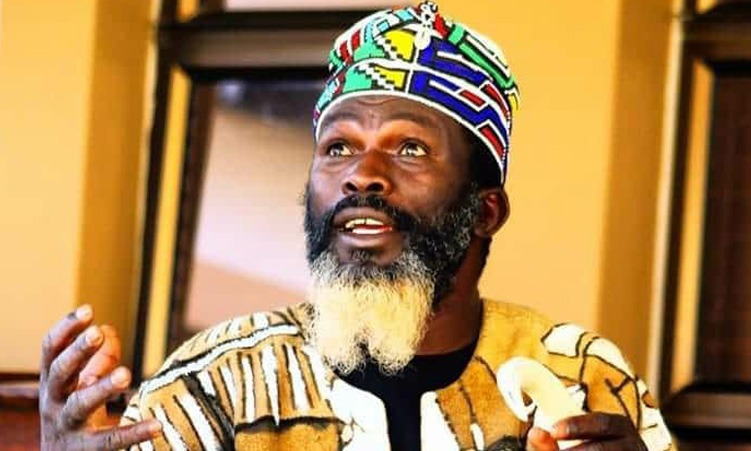The Chinese embassy in Namibia recently nominated me to attend a seminar on Chinese modernisation and African development.
The event took place in the eastern China province of Anhui from 29 October to 6 November.
At this pivotal moment, the world community is confronted with opposing viewpoints on modernisation, development and anti-globalisation movements.
After the reform and opening-up policies of 1978, foreign technology and capital was brought in while upholding China’s commitment.
As a result, China’s economy grew from being impoverished and undeveloped to becoming a major economic force.
Additionally, China’s development strategy extended beyond its boundaries by adopting the idea of creating a community with a shared future for all people.
Furthermore, Africa’s ascent in the 21st century has been largely attributed to Chinese modernisation.
China has invested more than US$200 billion (about N$3,6 trillion) in Africa overall as a result of the ‘Going Global’ strategy.
Chinese companies have constructed mega infrastructure projects in Africa, including railroads, highways, ports, airports, special economic zones and industrial parks.
By drawing in foreign investment, creating jobs locally, lifting people out of poverty and progressively guiding populations towards a prosperous and well-off life, the continent’s economic development has been significantly enhanced.
RELATIONSHIP HISTORY
In 2023, the gross domestic product (GDP) of the Anhui province was estimated to be around 4.7 trillion yuan (about N$11.76 trillion).
With a population of roughly 63 million people, the province is the eighth-most populated area in China.
These businesses have attempted to reform and adapt to achieve innovation.
Africa can learn a lot from China.
Moreover, president Xi Jinping stated in his remarks at the 2024 Summit of the Forum on China-Africa Cooperation (Focac) that the friendship between China and Africa endures across time and space.
This relationship dates back hundreds of years when Chinese sailors made multiple trips to the African continent and African traders, tourists and scholars interacted with China.
Thus, by supporting the idea that every person deserves respect and dignity, as well as the advancement of values that support freedom and independence, this partnership reflects modern-day China’s dedication to humanism and harmony.
This is demonstrated by the high-level visits made by Chinese and African leaders over the years, which have led to revolutionary policies that are now essential to Africa’s success.
In retrospect, the 1980s was dubbed the ‘lost decade’ for the continent since a complicated socio-economic crisis was brought on by the externally adopted modernisation model.
Africa’s attempts to chart a different course for modernisation and economic recovery were thwarted by dictatorships.
The majority of African nations were caught between the emergence of modern nationalism and the pursuit of nationhood.
Over 850 million people have been lifted out of absolute poverty, the largest in human history, as a result of China’s peaceful ascent, which has allowed it to move closer to meeting the 2030 United Nations Agenda for Sustainable Development.
China’s economy has grown to become the second-largest in the world, and it is now the largest trader of goods, the largest holder of foreign exchange reserves, and the largest manufacturer, earning the title of ‘the world’s factory’.
More than 400 million Chinese have now entered the middle class, making it the largest middle class in a single nation in the world.
At the same time, more than 1.4 billion people are moving towards full modernisation.
China has been Africa’s biggest trading partner for 15 years running thanks to this accomplishment.
SINO-NAMIBIA TIES
The China-Namibia partnership has the potential to propel the renewable energy revolution and serve as a catalyst for significant changes in food systems and digital connectivity.
It is worth noting that Namibia can optimise China’s assistance in areas ranging from trade to information systems, finance and technology.
Namibia can take advantage of trade between Africa and China by participating in the China-Africa Economic and Trade Expo.
Indeed, the China Belt and Road Initiative seeks to connect Asia and Africa to promote trade, boost economic growth and fortify regional integration.
China’s continuous efforts to satisfy the infrastructure gaps in sub-Saharan Africa could increase the continent’s GDP and give people hope.
In conclusion, China has committed to support collective development and work towards a more equitable and representative global order.
Instead of being dominated by any one country, it promotes a globalisation that is founded on fair participation.
- Josef Sheehama is an independent bank researcher and economist.
Stay informed with The Namibian – your source for credible journalism. Get in-depth reporting and opinions for
only N$85 a month. Invest in journalism, invest in democracy –
Subscribe Now!






